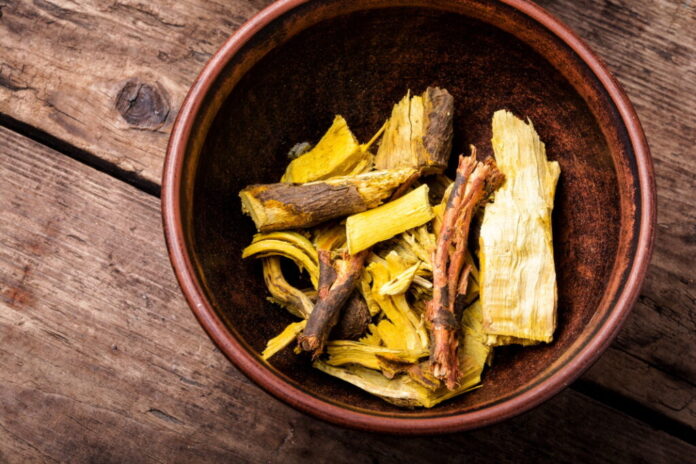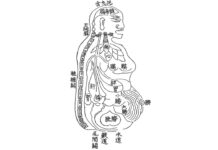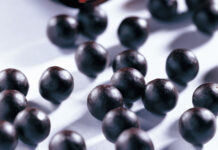
A Promising Case Report Was Reported in Korea Regarding Weight Control without Ephedrine.
By Namwook Cho, L.Ac.
In Chung-Yeon Central Institute, South Korea, a research team studied an herbal formula containing GLP-1 and confirmed the formula was helping weight loss without using Ephedrine.
Even the case report researched one object, but it is important that herbs in the formula used to the object were made with already proven to be replaced with Ephedrine for weight control. After taking the formula for ten weeks without exercising nor acupuncture treatment, the BMI of the male object reduced by 7.19%, but the Body Fat Ratio reduced from23.3% to 22.0%. The object took the formula three times a day, and one dosage was 120cc.
Chung-Woon Jeon, a team leader of the research, said, “Primary objective of obesity treatment is suppressing chronic inflammation to prevent metabolic disease, and only 5% of weight loss could be determined as clinically significant improvement”. The weight of the object was reduced by 8%.
Herbs that Contain GLP-1 Could Replace ma huang for Weight Loss Treatment
GLP-1 Helps Lower Glucose Level in Low Dosage
Many acupuncturists have been searching for a herb or herbs to replace ma huang (Ephedrin), which an acupuncturist cannot proscribe due to Ephedrine for weight loss treatment. Also, some patients cannot take ma huang because ma huang works by stimulating the sympathetic nervous system. Especially someone who is sensitive to caffeine or has hypertension should not take ma huang due to side effects that could be serious.
Research using Glucagon-like peptide 1 (GLP-1), one of the gut peptide hormones, has an action to induce satiety, and its effect as an anti-obesity agent has been scientifically proven.
And their research was proved without using ma huang, other herbals that are proven to control weight efficiently. Glucagon-like peptide-1 (GLP-1) is a promising target for diabetes mellitus (DM) therapy and reduces diabetes due to obesity. However, GLP-1 will be hydrolyzed soon by the enzyme dipeptidyl peptidase-4 (DPP-4).
Recently, many herbal medicines have been reported to have an anti-diabetic effect through inhibition of the DPP-4 enzyme and inducing GLP-1 secretion. It is therefore suggested that GLP-1 may be effective for the treatment of obesity. In this study, the team reported a case of obese male patients treated with herbal medicine as a GLP-1 secretagogue.
The research team asked the patient to take a fixed prescription of herbal medicine for 10 weeks and recorded his weight at each visit. The herbal medicine composition for the one-day dosage was 40grams of huang lian, 20 grams of zhi zi, 20 grams of dan shen, and 30 grams of hu jiang (Polygonum cuspidata), 8 grams of gui zhi, and 8 grams of zhi shi to extract 360cc.
After 10 weeks of herbal medicine administration of doses of the herbal medicine, the patient’s weight was significantly lost (BMI loss>5%). Also, in the follow-up period after two weeks of 10 weeks, the weight loss effect lasted. And the research team concluded that the prescription could be an alternative to ephedra herba-based obesity treatment.
GLP-1 acts to enhance satiety and suppresses the Dipeptidyl peptidase-4, DPP-4 enzyme, digestive tract movement, and process of excretion of the stomach. One of the active ingredients of hung lian berberine controls glucose level in low dosage, but it has a role in reducing weight in high dosage. One chemical in zhi zi, geniposide has a role as receptor of GLP-1 and controls and surpresses depressional feeling due to reduced calories for weight control. Also, another chemical in zhi zi, genipin also has a role to act as an anti-obesity and anti-depressional agent. Hu jian also controls glucose level by suppressing F1F0-ATPase/ATP. Dan shen is a well-known herb that reduces cholesterol and anti-inflammatory and cures cardiovascular symptoms. Cinnamaldehyde in gui zhi does suppressing appetite. Lastly, naringin in zhi shi treats insulin resistance.
The research was published in the Journal of Internal Korean Medicine 2019:40(6): 1294-1302 and titled “Simple Obesity Treatment by Single Intervention of Herbal Medicines without Ephedra Herba: A Case Report.”




































